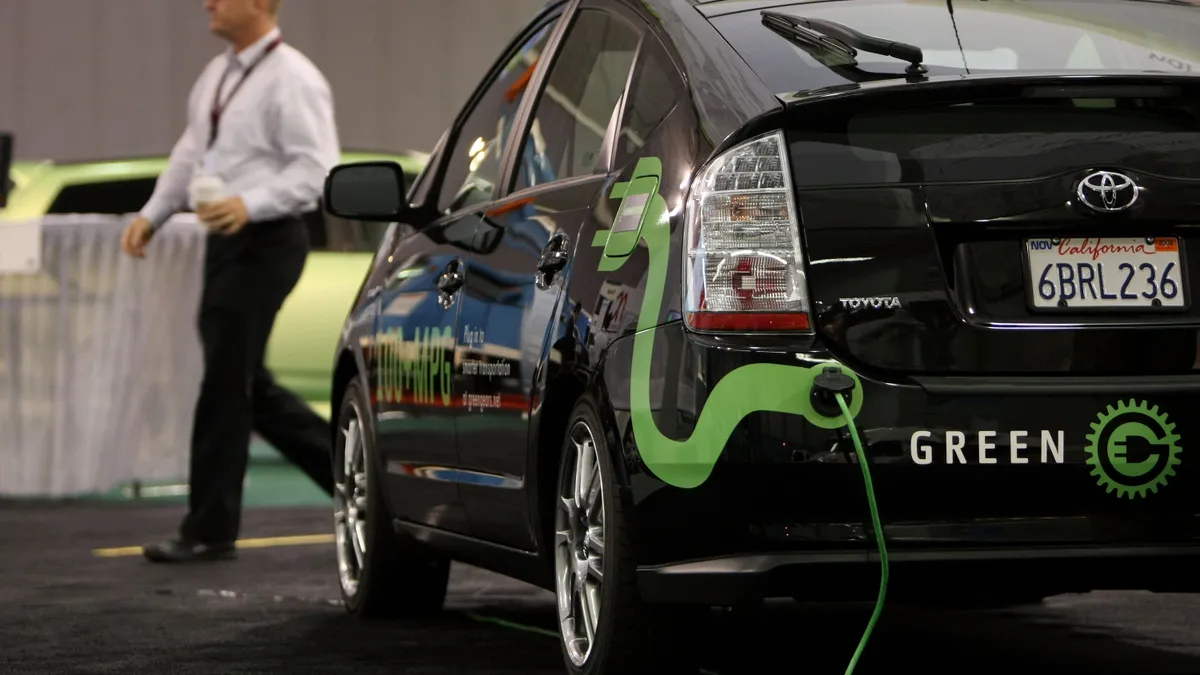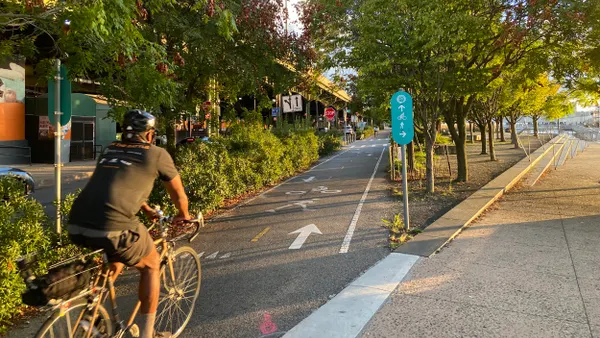Dive Brief:
- Backed by state funding, a tech company is installing 120 electric vehicle chargers at apartment complexes throughout California in an effort to remove obstacles that prevent lower-income renters and residents from owning EVs.
- The company, EVmatch, received a more than $700,000 grant from the California Energy Commission (CEC) to deploy the charging stations in the parking lots and garages of apartment buildings in Santa Clara, Los Angeles, and San Diego counties. The exact neighborhoods have not yet been determined, but the company plans to target properties where residents face major barriers to owning and charging EVs, said founder and CEO Heather Hochrein.
- California has programs in place that address upfront purchase costs and financing of EVs, so increasing access to charging infrastructure is “the last piece of the puzzle,” said Katherine Stainken, senior director of EV policy at the Electrification Coalition.
Dive Insight:
EVmatch is a peer-to-peer platform that allows EV owners to connect with homes and businesses that are selling the use of their chargers through the app. The company received a $728,250 grant from the CEC through its BESTFIT Innovative Charging Solutions initiative and also chipped in over $400,000 from its own coffers, according to Toan Lam, a spokesperson for the commission. The CEC is working on a separate grant program to provide charging stations in rural California communities.
EVmatch is installing Level 2 charging stations, which are considered one of the more affordable charging options, but they take about 8 to 10 hours to power up a car from zero charge to 100%, Hochrein said. The stations will be available to the public during some hours of the day and at all hours to building residents.
Convenient charging solutions for people who live in apartments can be crucial. More than 80% of EV owners charge their vehicles at home. However, about one-third of the U.S. population does not have a garage or carport where they can charge their vehicle.
EV ownership in California specifically is still dominated by people who live in detached housing or who own homes, Lam said. In Santa Clara, 35% of residents live in apartments, but only 9% of county residents who received EV rebates through a state program live in such a dwelling, he said. Similar ratios are seen in Los Angeles and San Diego counties, Lam added.
California needs the speedy installation of new charging stations to meet the lofty mandate Gov. Gavin Newsom set in an executive order issued last year banning the sale of new non-zero-emission passenger vehicles by 2035. More chargers are also needed nationwide. President Joe Biden on Thursday restored and bolstered Obama-era tailpipe emissions rules for 2023-model-year vehicles and signed an executive order calling for a goal of half of all vehicles sold in the U.S. being EVs by 2030.
EVmatch plans to finish rolling out the 120 charging stations by the end of 2023. The initiative will provide charging access to over 20,000 renters throughout the state, many of whom have opted out of purchasing an EV due to limited charging access, Hochrein said.
Efforts to target charging stations at apartment complexes also could help ease range anxiety, since it would allow them to conveniently charge their car overnight, Stainken said.
The upfront cost of an EV is expected to match gas vehicles on price by 2024 or 2025, and there are a number of incentives that can bring that price down. Further, due to lower operating and maintenance expenses, the cost of owning an EV throughout its lifespan is often lower than that of a gas vehicle, according to Consumer Reports.
“This collaboration is definitely going to break down barriers to EV adoption,” Stainken said. “We need to get the infrastructure in place as the cost of EVs declines even further.”











